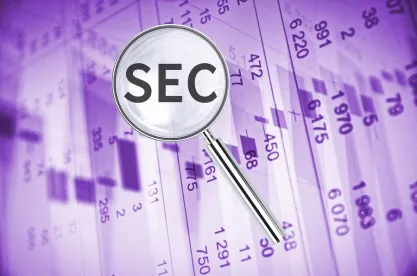On January 11, 2017, the Securities and Exchange Commission’s Office of Chief Counsel, Division of Investment Management, issued an interpretive letter pursuant to Capital Group’s request under section 22(d) (Section 22(d)) of the Investment Company Act of 1940, as amended (1940 Act), concurring that the American Funds is able to offer Clean Shares (as defined below) for which a broker may charge customers commissions to effect transactions if such broker is acting solely as an agent on behalf of its customers.[1] Clean Shares are a class of shares of a mutual fund without any front-end sales load, deferred sales load, or other asset-based fee for sales or distribution (i.e., Rule 12b-1 fees).
Section 22(d) and Rule 22d-1 under the 1940 Act generally require that funds – not broker-dealers – set the pricing on sales charges to investors. Prior to the issuance of this Letter, it was generally understood that transactions in fund shares could be effected by brokers only at the current public offering price, and with the sales load, if applicable, established by the fund itself and disclosed in the fund’s prospectus. As a result, different funds sold by the same broker may have charged different sales loads to investors.
If Clean Shares become an industry norm, then a broker will be able to establish its own commission schedule on effecting transactions in fund shares. This structure may therefore allow brokers to effect transactions in fund shares through their brokerage systems in a manner that reduces conflicts of interest.
A broker will be able to set its own commission rate to effect transactions in Clean Shares if:
-
The broker represents in its selling agreement with the fund’s underwriter that it is acting solely on an agency basis for the sale of Clean Shares.
-
The Clean Shares sold by the broker do not include any form of distribution-related payment to the broker[2].
-
The fund’s prospectus discloses that an investor transacting in Clean Shares may be required to pay a commission to a broker, and if applicable, that shares of the fund are available in other share classes that have different fees and expenses.
-
The nature and amount of the commissions and the times at which they are collected are determined by the broker consistent with the broker’s obligations under applicable law, including but not limited to applicable FINRA and Department of Labor rules.
-
Purchases and redemptions of Clean Shares are made at net asset value established by the fund (before imposition of a commission).
The staff also stated its belief that Section 22(d) does not prohibit a principal underwriter of Clean Shares from entering into a selling agreement with a broker under these circumstances[3]. In addition, the staff noted that its position does not depend on whether the broker is selling to retirement or nonretirement accounts.
[1] Capital Group, SEC Interpretive Letter (Jan. 11, 2017) (Letter).
[2] While Capital Group’s incoming request letter stated that the requested guidance would only apply to fund shares that did not have any compensation for distribution payable to the broker-dealer firm including from the fund’s underwriter or investment adviser, it is noted in a footnote to the Letter that the staff is not addressing the effect under Section 22(d) of a broker receiving revenue sharing payments from a fund’s adviser. The Letter also does not address the effect if a broker receiving non-distribution fees from a fund or its adviser. Therefore, it remains an open question as to whether or not brokers selling Clean Shares could receive any fees from the fund or its adviser, including for shareholder servicing or sub-transfer agency services as those issues are not addressed in the Letter.
[3] Sample selling agreement language is included in Capital Group’s incoming request letter.


 />i
/>i

